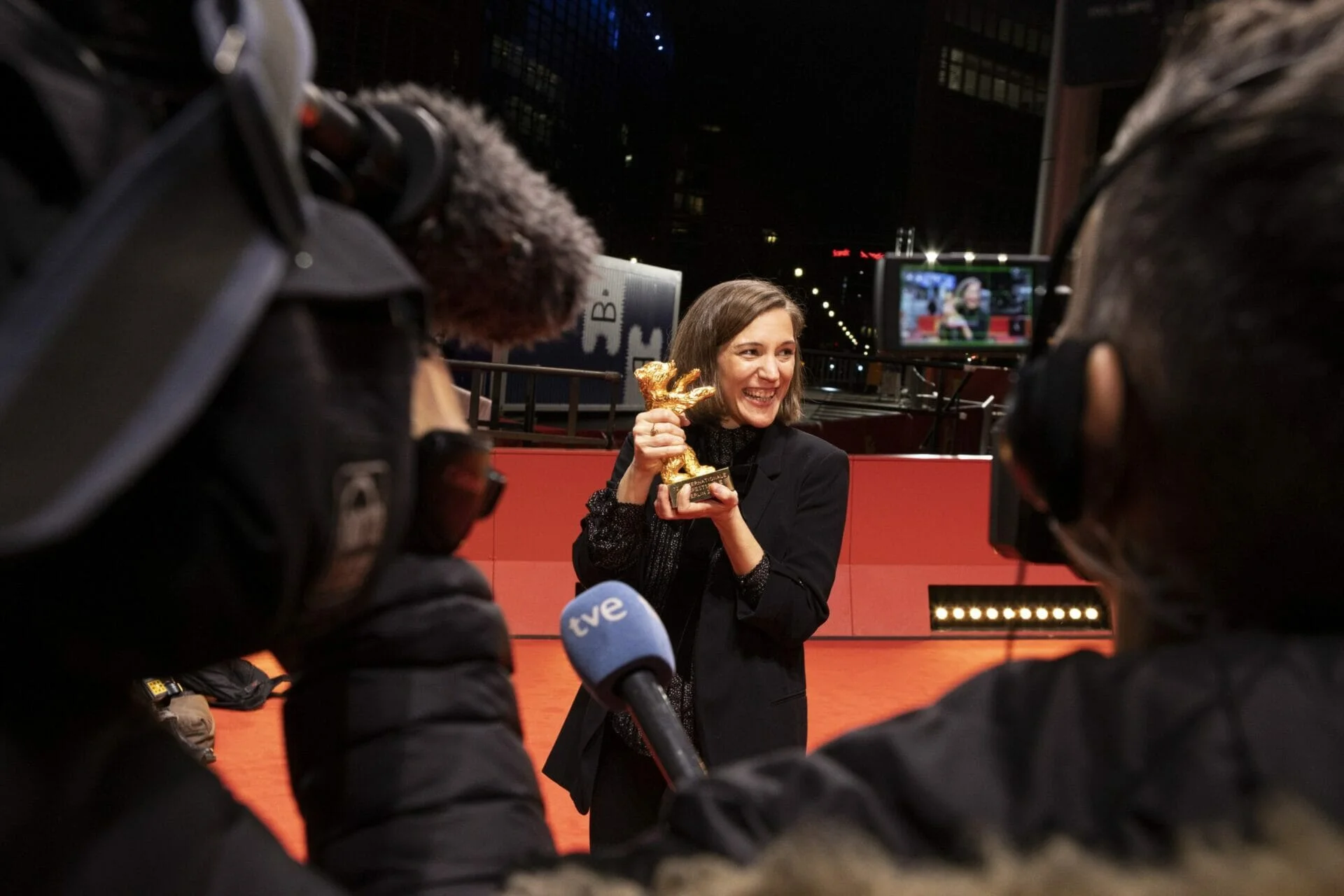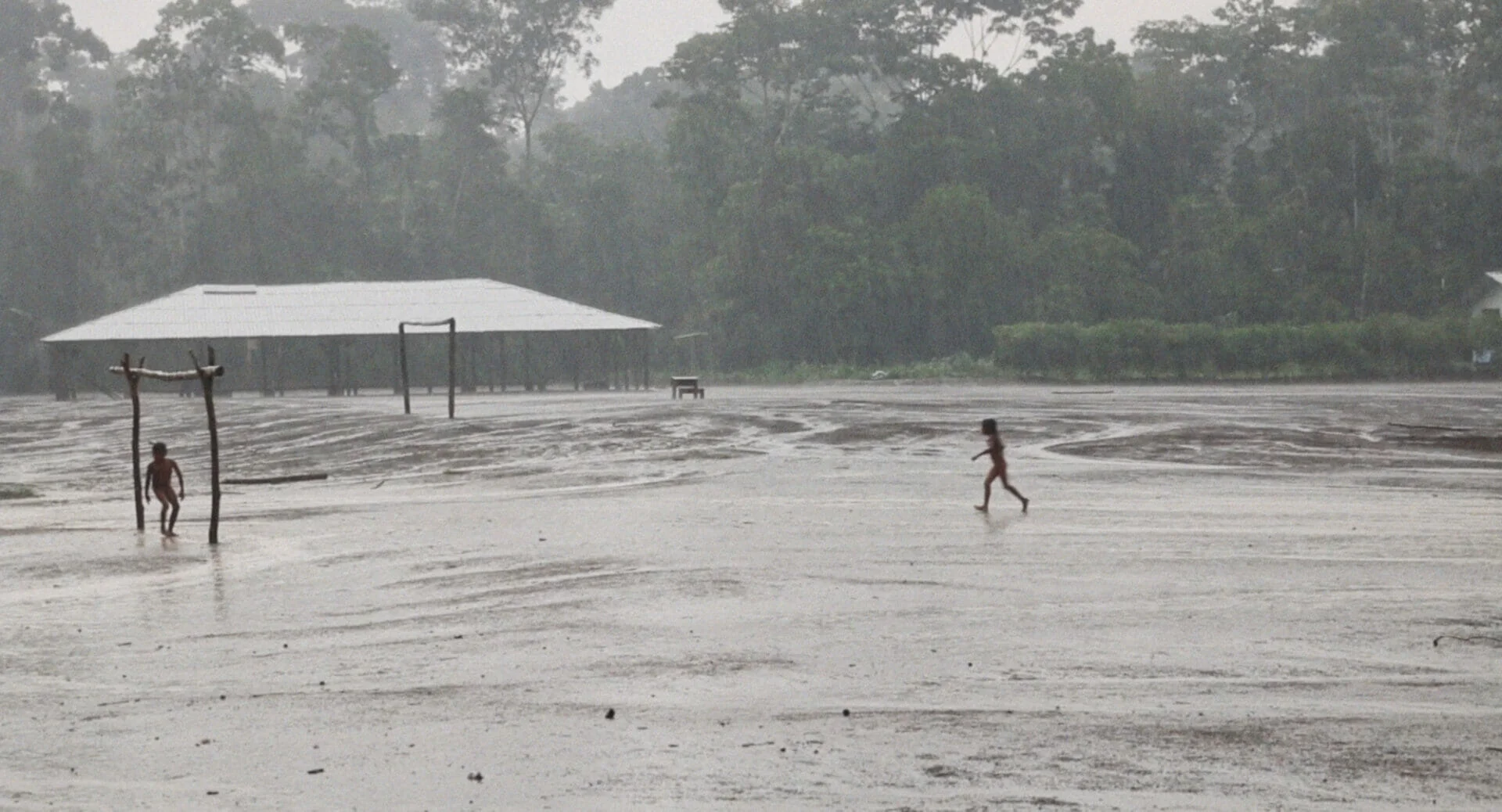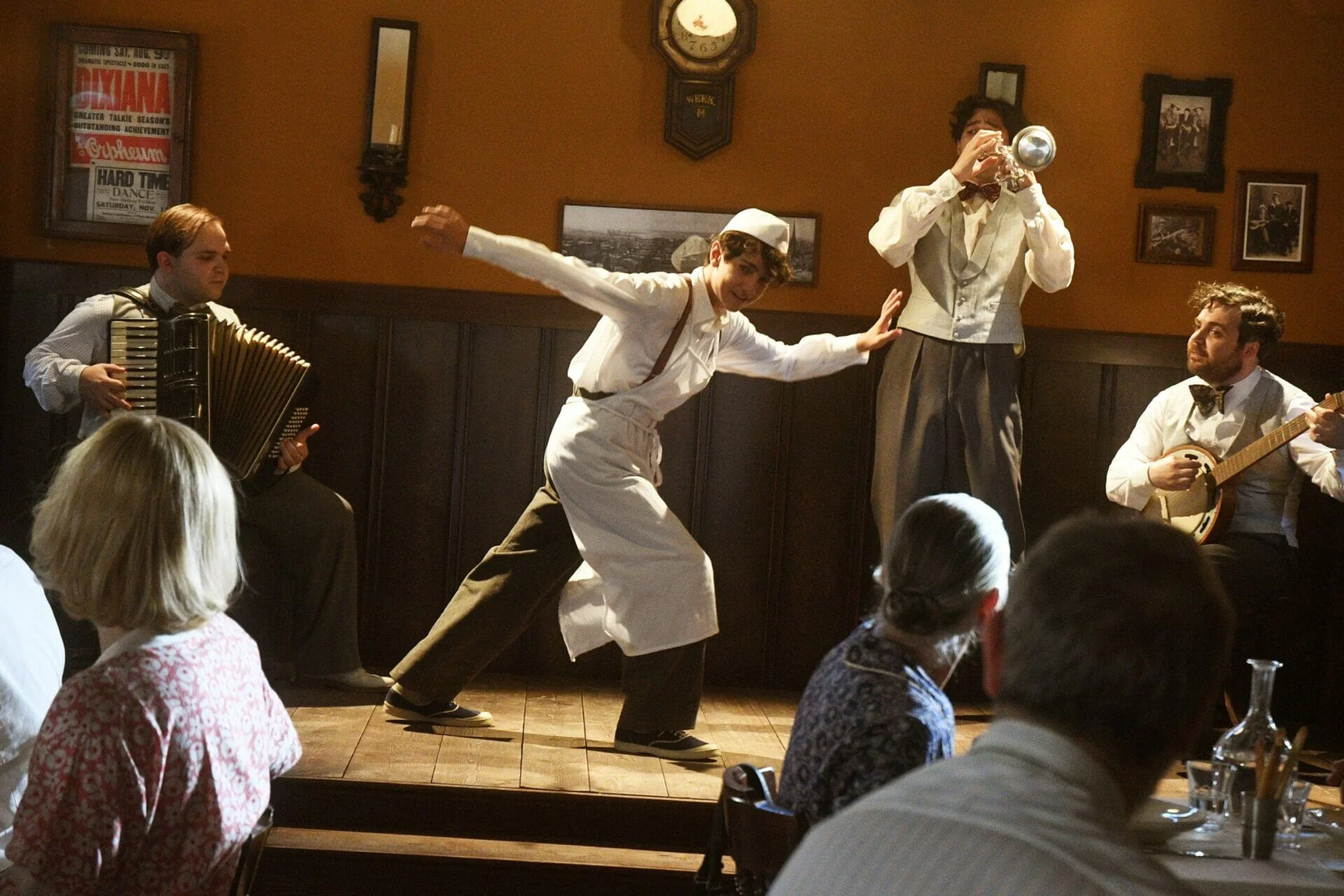
The 72nd Berlin Film Festival has just finished. But Berliners and the filmmaking community are already looking forward to the next one. Despite the organizational challenges caused by the pandemic, the last ten days of the Berlinale have been a beautiful break from this new exceptional normality the world has been living in since 2020. The cinemas were crowded again, people were hugging each other in front of the venues, actors and directors started new majestic projects. Of course, the world of cinema is not back to what it was, but the desire is there. And that the festival took place in person, and as a collective experience, has already been a huge step
(Un)fulfilled expectations
When presenting this year’s festival, director Carlo Chatrian had anticipated that imagination and humor were going to be the fil rouge of this year’s program. However, another recurrent element emerged during the festival. In many movies, regardless of the section they were competing in or the production’s nationality, performing arts were central. Actors and actresses singing, dancing, and playing music were a must. Sometimes these scenes were the key aspects of a story, some others were fulfilling more because of a decorative purpose.
Before the festival began, Chatrian had also argued that not many movies were going to take place in an obvious pandemic setting. However, the omnipresence of dancing/singing scenes, in a rather domestic setting, must have also been a result of these last two years of isolation.
Art is just one thing that has found its moment during the pandemic. People, confined in their apartments, found comfort in learning how to play a new musical instrument, transformed their bedrooms into ateliers, and gathered on the balconies to sing along with the neighbors. However dancing, singing, and playing music are three of the most powerful ways to communicate, across time and space, and across cultures.
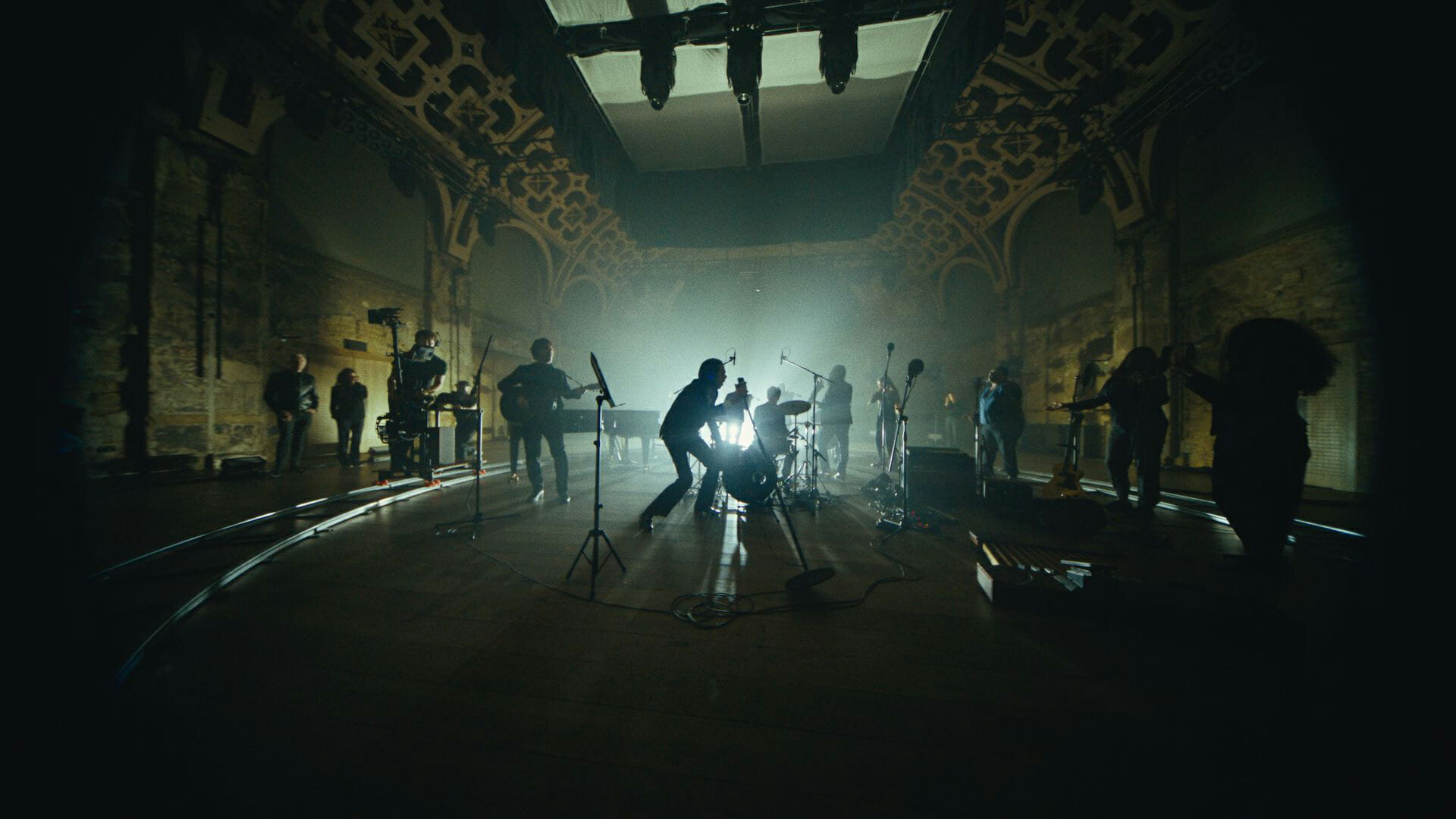
This Much I Know To Be True brings on the screen studio sessions, conversations, musings, and beauty to break the silence and distance due to pandemic.
In the still: Nick Cave, Warren Ellis. This Much I Know To Be True by Andrew Dominik | GBR 2021, Berlinale Special
© Bad Seed Ltd.
Most memorable scenes in the movie’s history
For all these reasons, dancing and singing scenes are just some among the most memorable scenes in cinema’s history. Even if one leaves aside all the musicals, the list is long. From Moon River in Breakfast at Tiffany’s, the twist contest in Pulp Fiction, Day-O (The Banana Boat Song) in Beetlejuice and the Flashdance tribute in Gremlins, the dance contest in Little Miss Sunshine, the kids singing The Ballad of Paladine in Stand by Me, or the karaoke scene of Lost in Translation. These scenes are so powerful and unreplaceable because, when dialogues are not enough, singing playing and dancing do it all. As they also did in many movies of this year’s Berlinale.
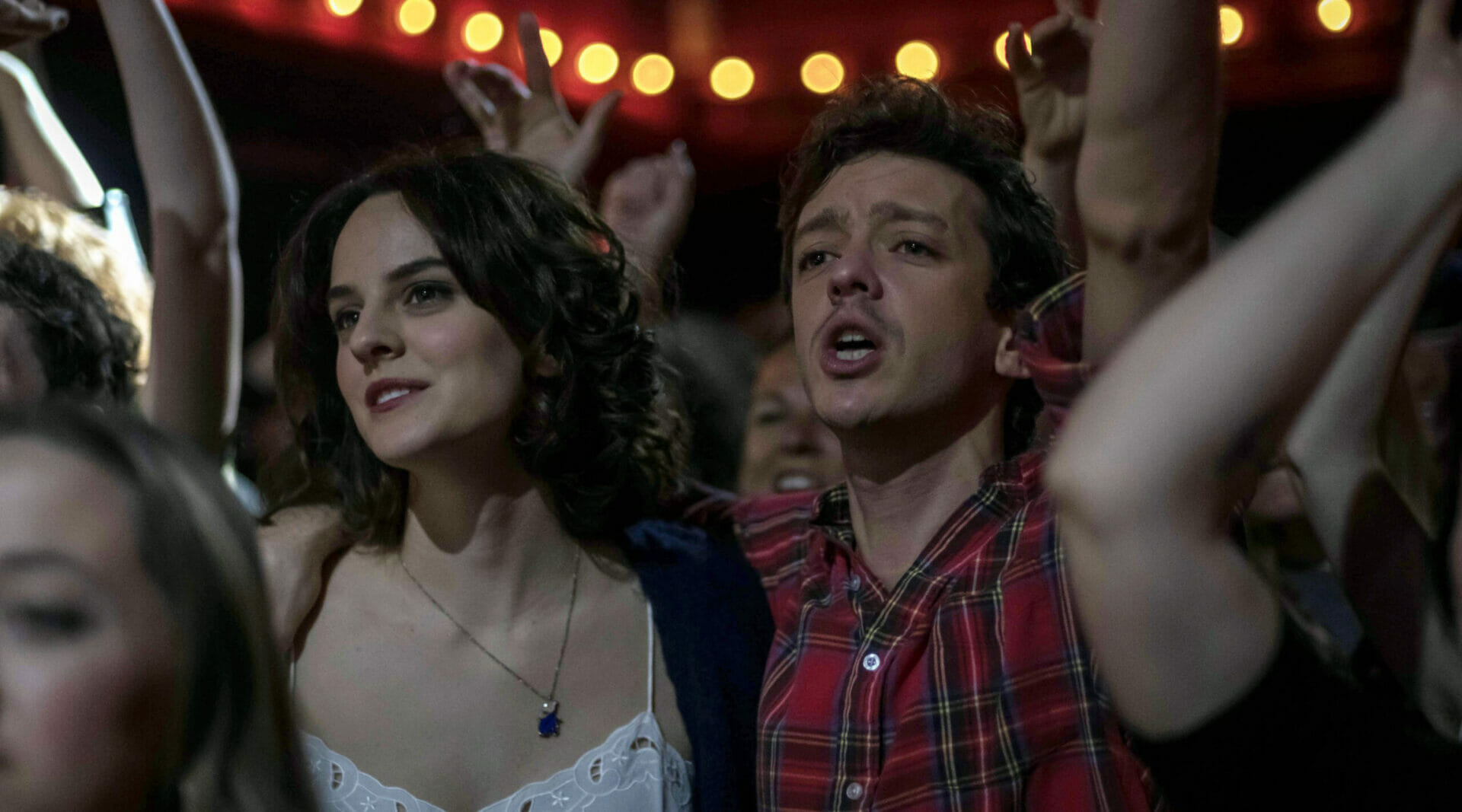
Image courtesy of BAMBU PRODUCCIONES, S.L – MR. FIELDS AND FRIENDS CINEMA, S.L – LA TERMITA FILMS, S.L – NOODLES PRODUCTIONS, S.A.R.L
Standing up to terrorism through cultural events in Un Año, Una Noche
In Un Año, Una Noche by Spanish director Isaki Lacuesta, a young couple, Ramón (Nahuel Pérez Biscayart) and Céline (Noémie Merlant), tries to start living again, after having been through the Bataclan terrorist attacks of 2015 in Paris. This cinematographic adaptation of the autobiographical book Paz, Amor y Death metal, written by the survivor Ramón González, starts and ends with a concert of the Eagles of Death Metal in the Bataclan theater. In the first scene, the music quickly becomes a death prelude, while on the contrary, one year later, on the anniversary of the attack, it is a hymn to life. No words could have been more clear than the refrain Ramón and Céline dance and sing along: “Don’t say a prayer for me now. Save it ’til the morning after”.
In Un Año, Una Noche dancing, playing, and singing become the symbols of resistance. As Ramón repeats many times, staying at home and not enjoying the simple pleasures of life will only let the terrorist get what they want: a world of fear without beauty. Attending a concert again or going to a club after the terrorist attack, are scary experiences for Ramón and Cèline. However, these are ways to reclaim their lives. As Lacuesta also argued during the press conference of the movie’s premiere, “The production of Un Año, Una Noche started before the pandemic, but after this two years of isolation and impossibility of attending public cultural events, this story acquires new meanings and power”.
Music as family’s glue in La Ligne
In La Ligne by director Ursula Meier, music is the family’s glue. The only element uniting three very different women: Christine (Valeria Bruni Tedeschi), Margaret (Stèphanie Blanchoud), and Marion (Elli Spagnolo). Christine is a talented music teacher who passes on her gift and passion to her daughters. As Meier argues in the movie’s treatment “music is the only positive legacy passed onto Margaret by her mother, which she, in turn, passes onto Marion” by giving her singing classes.
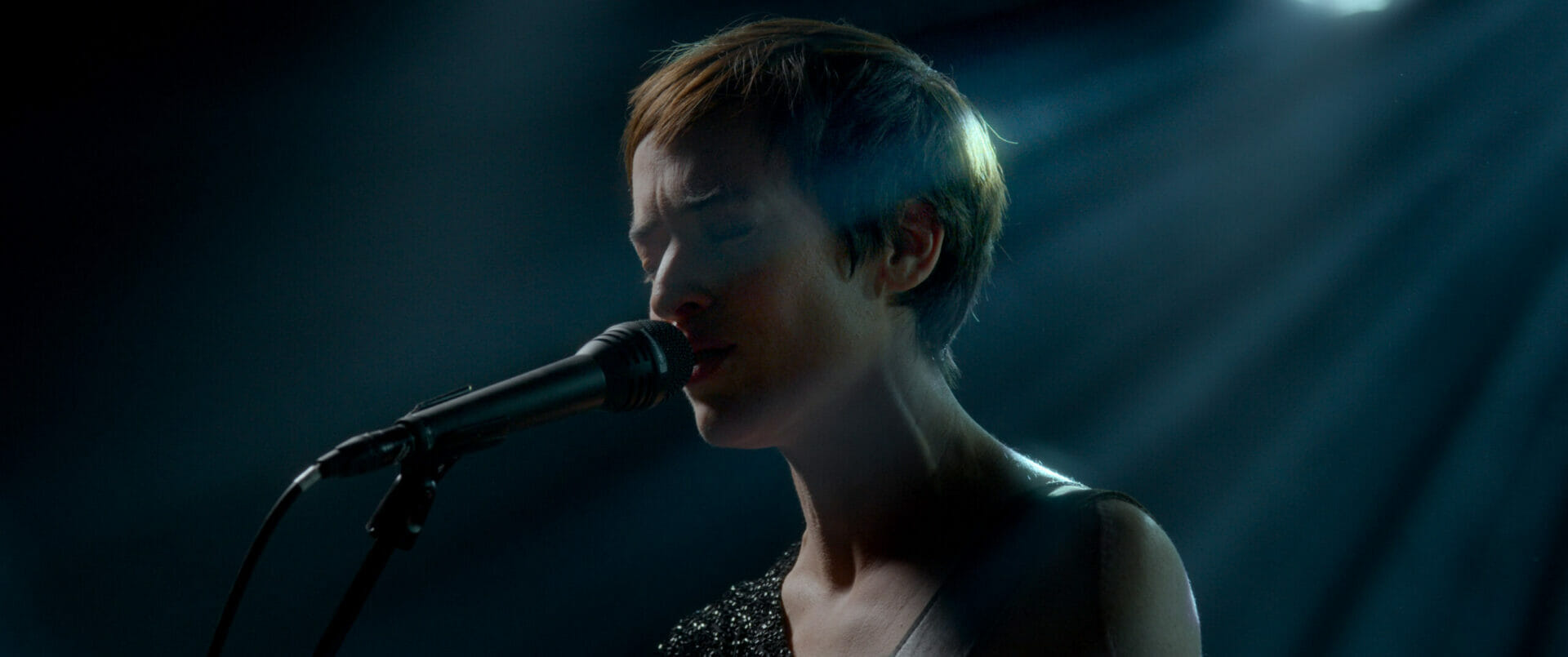
Image courtesy of © 2022 BANDITA FILMS / LES FILMS DE PIERRE / LES FILMS DU FLEUVE / ARTE FRANCE CINEMA / RTS / RTBF (Télévision belge) / VOO et BE TV
Margaret is a singer-songwriter in her mid-thirties who has to come to terms with her violent instincts. Music replaces her inability to speak and calms her down. Differently, the very young Marion is empowered by music. By singing devotional songs, like Agnus Dei, and in God, she finds the strength to be the family’s peacekeeper. Despite the recurring conflicts, playing music and singing is the only realm of truce in this family. The only few harmonious scenes of the movie, where no one is shouting or slamming doors or hitting something or even someone, are when Margaret rehearses for her show, teaches Marion to sing and when Christine plays one last time her beloved piano.
Survive to sing in Rimini
In the “anti-musical” Rimini by Ulrich Seidl, the keyword is decadence. Not only the buildings and beach bars of the famous seaside mecca but also the main character of the movie, Richie Bravo(Michael Thomas), are falling apart. His mother just died, he is broke and gets on day by day prostituting himself and thanks to a few gigs. Richie, a decaying star, tries to survive to sing, rather than sing to survive. His life’s failures become even more evident when, his daughter Tessa (Tessa Göttlicher) whom he hadn’t seen in years, reappears demanding money.
The gloomy plot and the concrete surroundings only seem to light up when the neons are turned on and Richie Bravo performs his successes in front of his outdated public. Fritz Ostermayer and Herwig Zamernik wrote the original compositions. And although they “absolutely nail the true horror of the Schlager music sound; think easy listening meets country but with a lobotomy,” as Leslie Felperin from Hollywood Reporter describes, it isn’t as disturbing as it may seem. Because those are the only scenes where Richie Bravo looks happy. This is where he finds the strength to keep on living, and somehow manages to drag along the nauseated spectators until the end of the movie.
Performing your true self in Peter von Kant
Songs also have a central role in Peter von Kant, by director François Ozon, which opened this year’s competition. Its stylish ’70s interiors, cool dance moves, and a solid cast make it a not-so-distant adaptation of Fassbinder’s Die bitteren Tränen der Petra von Kant. The public laughs and cries along with Denis Ménochet playing the successful self-flagellating director Peter, who falls in love with the extremely young and enchanting Amir (Khalil Gharbia).
In what develops instantly into a relationship marked by dominance and submission, Peter’s deepest feelings and thoughts are often expressed only through the lyrics of the songs he listens and dances to. One among all is Each man kills the thing he loves in a German version performed by Isabelle Adjani who in the movie plays Sidonie, Peter’s best friend and muse. The original track, based on Oscar Wilde‘s words, was performed in 1982 by Jeanne Moreau in another movie by Fassbinder: Querelle.
Fill the void with music and dancing in Nana
In the semi-autobiographical melodrama Nana by Kamila Andini, traditional Indonesian dancing and music fill the protagonist’s (Happy Salma) boring afternoons, as well as her existential void. Nana is a beautiful young woman who lost her partner and her first child during the Indonesian independence war. Remarried for 15 years to a wealthy plantation owner, Mr. Darga (Arswendy Bening Swara), she had four more children. Her comfortable and stylish life is unsettled by what seems to be Mr. Darga’s lover: Ina (Laura Basuki who won the Silver Bear 2022 for best-supporting performance).
Unexpectedly, this young and independent butcher soon becomes Nana’s companion. Their excursions to the waterfall and conversations about life and love, where questions like “Why does guilt always follows women?” find space, slowly replace Nana’s lonely afternoons where she used to spend listening to her private gamelan, a traditional Indonesian music ensemble. In the movie’s soundtrack by Ricky Lionardi, typical Indonesian percussion instruments like kendhang, kemanak, or gangsa are enriched by sensual string arrangements and Indonesian pop songs from the ’60s. Also, some beautifully choreographed scenes where Mr. Darga or Nana perform the traditional dances, evoke the performative dimension of their marriage and public life.
Singing the pure joy in Leonora Addio
In Leonora Addio by award-winning Paolo Taviani, music plays a key role: thematically and as a narrative device. The title, which comes from one of Luigi Pirandello‘s novels, reveals it. “Leonora Addio, Leonora Addio…” is in fact also the closing lyrics of an aria of Giuseppe Verdi’s Il trovatore. More generally, the soundtrack by Nicola Piovani plays an important role. It gives continuity to this very fragmented piece of art. However, there is one scene of great significance for Taviani.
It is the scene where the delegate of Agrigento’s municipality (Fabrizio Ferracane), who has the task of taking Pirandello’s ashes to Sicily, finally arrives on the island after a long and not easy trip. In the train’s compartment, a man plays a Sicilian ballad on the piano and Fabrizio Ferracane, who is also Sicilian, sings along and smiles for the first time in the movie. Then, the close-up moves abruptly to two children running after each other along the train tracks. “This is the pure essence of joy: to be home and to have fulfilled your task”, Taviani explained during the press conference of the movie’s premiere.
Archaic and modern songs in Alcarràs
In the movie which won the Golden Bear, which was Alcarràs by director Carla Simòn, the songs express the overarching tensions, as well as continuities, between the different characters of the Solè family. For as long as they can remember, all the members of this tight-knit group have been picking peaches in the orchards of Catalonia. However, this summer will be the last one. The landowner has decided to eradicate the trees and install solar panels, which are more lucrative. To this news, each character of the movie reacts differently but, as in a chain, it also affects all the others. The head of the family Quimet (Jordi Pujol Dolcet) refuses to accept reality, while his brother adapts quickly. The grandfather tries to change the landowner’s mind with gifts and tenderness.
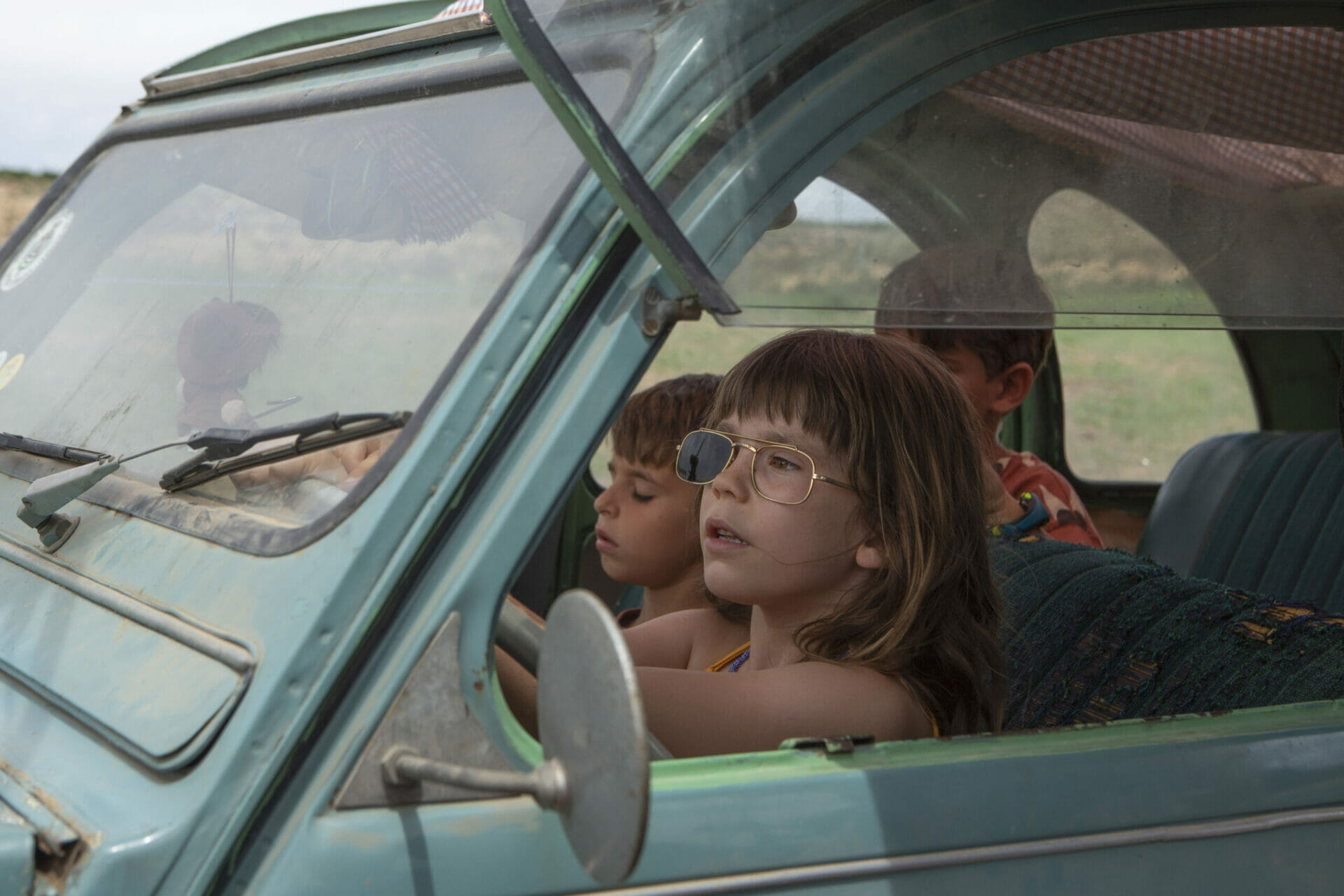
Image courtesy of © LluisTudela
And then there is naughty little Iris (Ainet Jounou). She is too young to understand what is going on. Nevertheless, she becomes the link between the archaic agricultural world which is disappearing on the one hand and modernity on the other. Iris spends the summer playing with her cousins, listening to her grandma’s old stories about the region, and learning Catalunian traditional farmers’ songs from her grandfather.
When towards the end, she performs in front of the whole family “I sing for my land, my solid land”, silent tears start flowing from her relatives’ eyes. At that moment, the whole family is suffering, each their way, but together, for the imminent loss of their beloved land and roots. They know that along with it, their history and cultural heritage will slowly disappear. While the stunning countryside is revealed outside the window, the public realizes that no dialogue or action could have expressed so well what the family is experiencing.
A song cover to break stereotypes in Sonne
In Sonne by emerging director Kurdwin Ayub, who won the GWFF-Prize for Best First movie in this year’s Berlinale, three friends shot a cheeky cover of Losing my Religion by R.E.M. At first, the girls just wanna have fun: they twerk, pose wearing hijabs, and sing in playback. However, as soon as the video becomes viral, their lives change. Bella, Natalie, and Yesmin acquire a particular notability within the Kurdish expat community, which the last one is part of.
As soon as the three start performing at parties, Yesmin’s identity starts to be questioned and dissected. Should she wear a hijab while singing? Is she allowed to make fun of religion? Her family is Kurdish from Iraq, but she was born and raised in Vienna. While Yesmin does not doubt that she can sing, dance, and have fun while keeping her Muslim identity intact, not only her mother but also her two best friends start having doubts. Paradoxically, Yesmin distance herself from everything, “losing” her friends, culture, and religion.
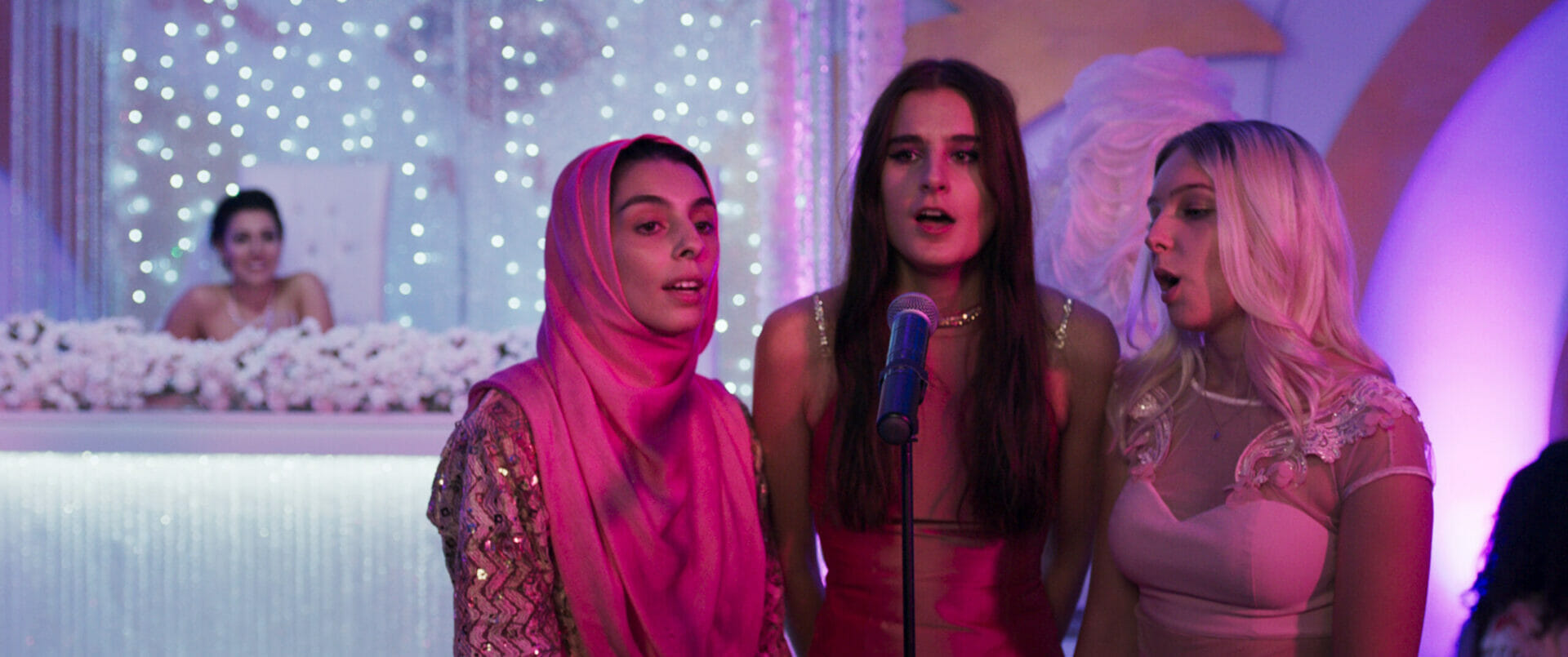
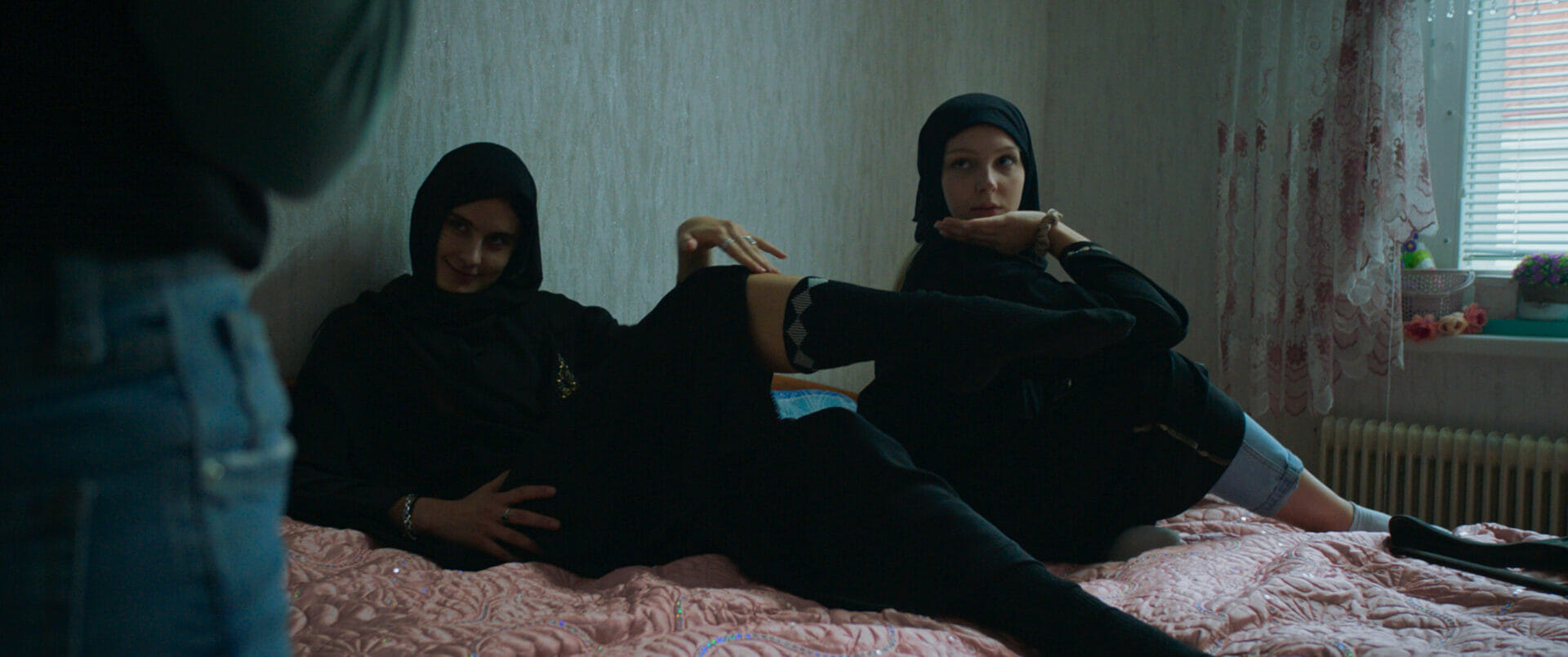
In the movies of this year’s Berlinale, dancing, singing, and music scenes were omnipresent. Each in its own way was necessary and meaningful, often communicating what dialogues fail to bring across. Maybe some of them will gain a spot on the list of most memorable scenes of cinema history.


